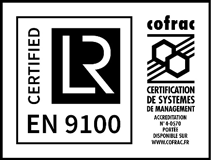At Metafour, sustainability is more than a buzzword—it’s a core value that guides our operations and innovations. Becky O’Connor, Account Director, was recently interviewed by Post and Parcel to share her insights on how the logistics industry is evolving to meet environmental challenges. Her perspectives highlight the commitment of companies to promote eco-friendly practices and drive sustainable change. Check out the full article from Post and Parcel below.
Environmental sustainability is a growing concern in the courier industry.
Can you share your insights on why it has become such a critical topic?
Becky: Absolutely. The courier industry has a substantial impact on the environment, largely due to its reliance on hydrocarbon fuels. As consumers become more environmentally conscious, there is a rising demand for businesses to adopt sustainable practices. The logistics industry was responsible for nearly a quarter of global carbon dioxide emissions in 2023, and projections indicate this could rise to 40% by 2040 without intervention.
That’s a significant challenge.
How can businesses and consumers contribute to mitigating these environmental impacts?
Becky: It starts with understanding the impact of global supply chain operations. Green logistics, which focuses on reducing the overall environmental impact, has become crucial. Consumers and businesses must make responsible choices, and this is where sustainability practices and technology come into play.
How can technology address the challenges faced by courier companies in achieving environmental sustainability?
Becky: Your software should offer a range of features that can significantly contribute to making supply chains more sustainable. For instance, the ability to rank and show available services according to their carbon footprint and providing information on CO2 savings during the booking process can empower you to make eco-friendly choices.
Can you provide specific examples of how these can be applied to promote sustainability?
Becky: Certainly. Let’s take the booking process as an example. Our software allows you to rank and display available services based on their carbon footprint. During the booking process, you are shown additional information, such as the CO2 saved by selecting a particular service over a benchmark service, like a small diesel van. Additionally, the reporting features, including basic and enhanced CO2 reporting, provide valuable insights into emissions and potential cost savings by utilising greener vehicles.
Those are compelling examples.
Can you highlight some of the ways technology can help reduce costs while promoting environmental sustainability?
Becky: One of the common misconceptions is that going green is costly, but the reality is quite the opposite. For instance, allowing you to identify and book green services at the time of booking can lead to more cost-effective choices. While delivery vans often come with hefty expenses such as fuel costs, congestion charges, and parking fees, opting for eco-friendly alternatives can significantly alleviate these costs. Take push bikes and cargo bikes, for example. These vehicles not only produce zero emissions but also operate at lower overall costs compared to conventional vehicles. They are exempt from congestion charges and parking fees, contributing to substantial savings for users.
Looking ahead, how do you envision delivery businesses adapting to and benefiting from these sustainability-focused features?
Becky: As environmental sustainability becomes a top priority in the courier industry, these features will play a crucial role in their adaptation. By offering the ability to make eco-friendly choices during the booking process and providing comprehensive reporting on emissions, we are empowering you to actively reduce your business’ carbon footprint. This not only aligns with social responsibility goals but also opens the door to potential cost savings through the intelligent selection of greener logistics options. Ultimately, embracing these features will gain you a competitive edge in an increasingly eco-conscious market.
What advice would you give to courier companies aiming for a zero-waste future?
Becky: To achieve a zero-waste future, courier companies must prioritise sustainability, collaborate with green partners, and leverage digitalisation in their day-to-day operations. By adopting eco-friendly practices, businesses not only enhance their brand reputation and customer approval but also contribute significantly to reducing carbon emissions, fuel consumption, and overall energy usage.
About the Author
Becky O’Connor, Account Director at Metafour, specialising in logistics, particularly same-day and mailroom services. With more than 20 years of experience in the industry, Becky has established herself as a leader in her field. Becky’s professional philosophy revolves around continuous improvement and innovation to drive positive change in the industry. By collaborating with her team at Metafour, she is focused on developing solutions that will benefit both the company and the environment. Find out more about our latest Sustainability Tools feature, CarbonTrack.
Contact:
- Email: becky@metafour.com
- Phone: +44 207 912 2000
Sources:
“Sustainability in the Logistics Industry,” Post and Parcel, accessed [date], https://postandparcel.info/page/2/?s=sustainability.






